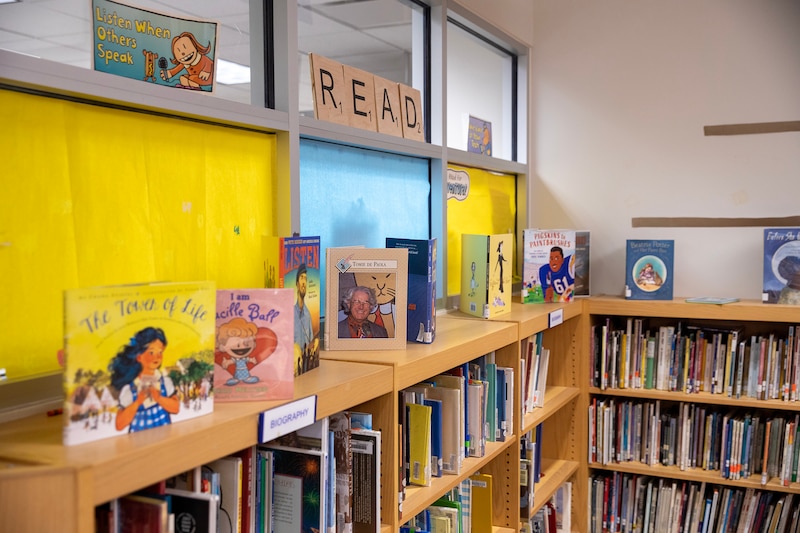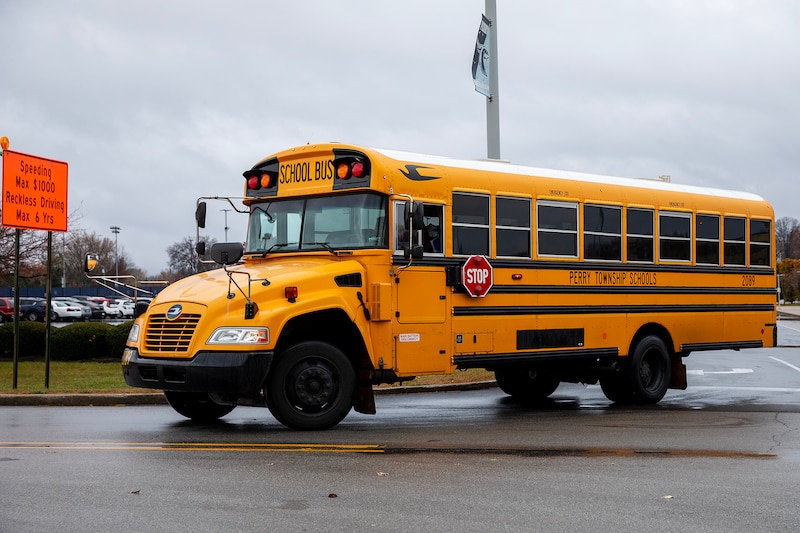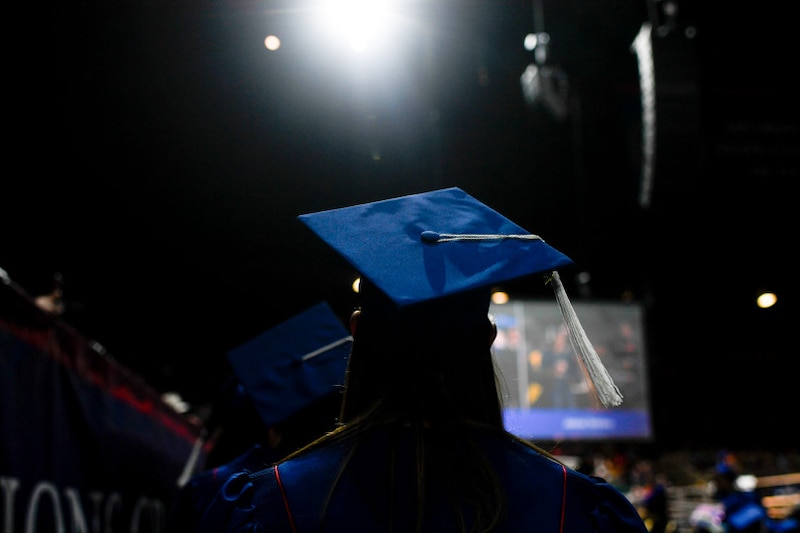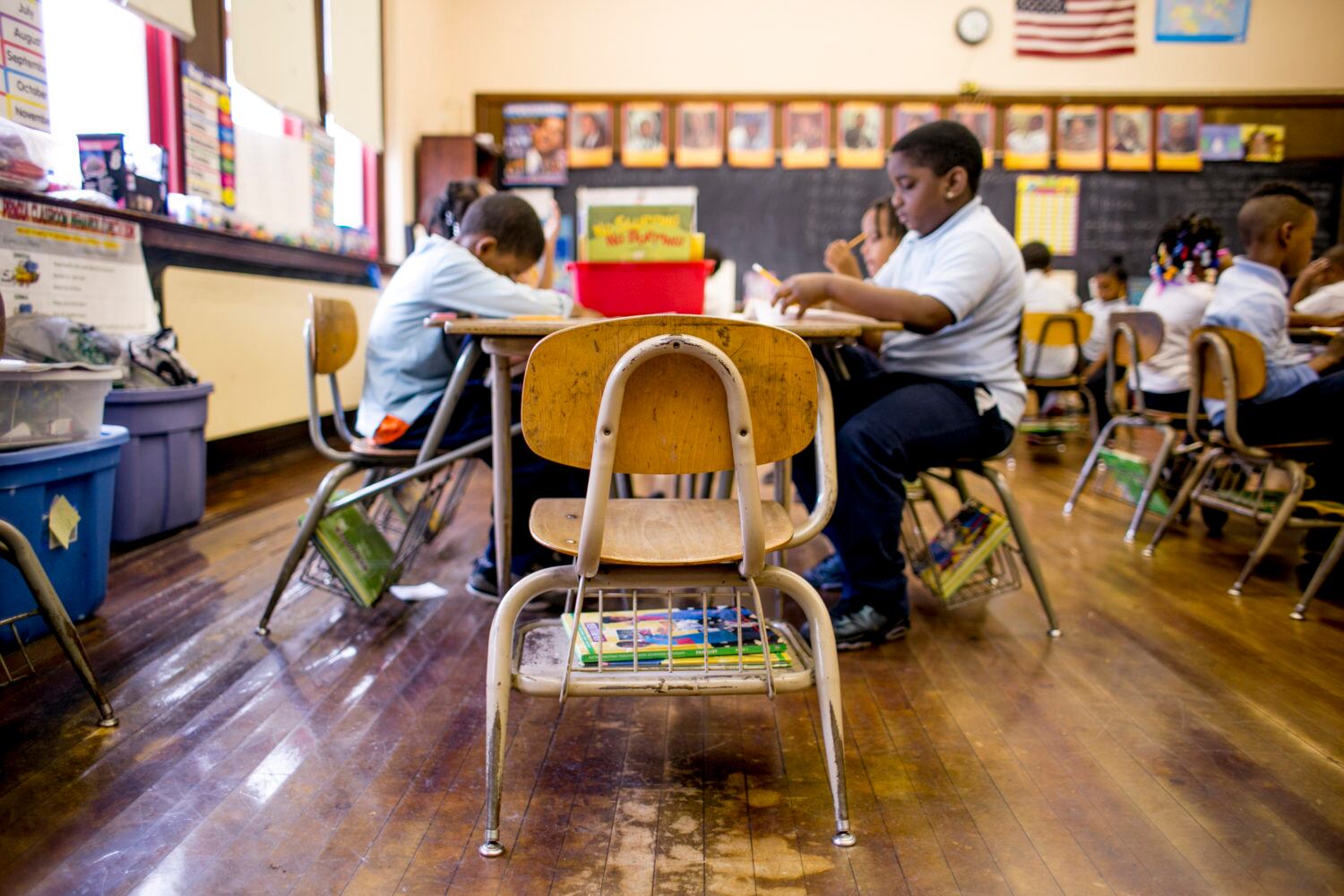Three years after the COVID pandemic began, schools across America are still finding their new normal.
School communities are desperately trying to reduce chronically absent students, struggling with how to spend waning federal COVID relief dollars, implementing new “science of reading” laws, and waffling on how ChatGPT should (or should not) be a part of classrooms.
Below are nine storylines from Chalkbeat reporters across the country that dove into those topics. What education stories mattered most to you this year? We would love to hear from you at community@chalkbeat.org.
Jan. 3: NYC education department blocks ChatGPT, but later reverses course
AI is here to stay, so how will America’s schools respond? At the beginning of 2023, New York City opted to run far away, blocking access to the program and citing “negative impacts on student learning, and concerns regarding the safety and accuracy of content.” But a few months later, the city reversed course, with schools Chancellor David Banks proclaiming the city’s schools were “determined to embrace its potential.”
Now, just over a year after the tech group OpenAI introduced ChatGPT to the public, some students at New York City high schools report widespread use of AI-powered chatbots among their peers. The same patterns appear elsewhere. In one national survey from July, 44% of teenagers said they were likely to use AI-powered tools to complete their schoolwork, even though a majority considered it cheating.
March 10: Tutoring help reaches few students despite nationwide push
As America’s schools confront dramatic learning setbacks caused by the pandemic, experts have held up intensive tutoring as the single best antidote. Yet even as schools wield billions of dollars in federal COVID relief, only a small fraction of students have received school tutoring, according to a survey of the nation’s largest districts by Chalkbeat and The Associated Press.
In eight of 12 school systems that provided data, less than 10% of students received any type of district tutoring this fall. The startlingly low tutoring figures point to several problems. Some parents said they didn’t know tutoring was available or didn’t think their children needed it. Some school systems have struggled to hire tutors. Other school systems said the small tutoring programs were intentional, part of an effort to focus on students with the greatest needs.

May 25: Indiana’s new ‘science of reading’ law requires districts to adopt research-backed curriculum
Indiana joined a growing number of states that require schools to use curriculum materials that emphasize phonetic instruction when teaching children how to read. The new law came amid concern from lawmakers and education officials in Indiana and nationwide about elementary school students’ reading ability — an issue exacerbated by the pandemic.
Yet new state reading laws have almost entirely omitted attention to another critical component of reading: background knowledge, or the idea that students are better able to comprehend what they read when they start with some understanding of the topic they’re reading about. In other words, building background knowledge is an idea supported by science that has not fully caught on to the science of reading movement.
June 16: The ‘Tennessee 3′ created a historic teachable moment. Will schools be allowed to teach it?
Tennessee is at the front of a conservative-driven wave of censorship about what can and cannot be taught in K-12 schools. A 2021 state law restricts classroom discussions about systemic racism, white privilege, and slavery’s ongoing legacy.
This had real effects in Tennessee classrooms, students and teachers said, when two young Black Democrats were ousted by the House’s all-white GOP supermajority for staging a protest on the House floor urging gun reforms after a mass school shooting in Nashville. Rep. Justin Pearson and Rep. Justin Jones were later reinstated.
“We definitely have noticed that a silencing is happening in our schools,” said Ava Buxton, also a senior at Hume-Fogg, when asked whether the expulsions of Jones and Pearson had been discussed in her classes.

August 31: One Detroit school’s multilayered effort to get absent students back to school
At one elementary-middle school in Detroit, a staggering 82% of students were chronically absent, meaning they missed 18 or more days. So, school leadership started a mentorship program, dispatched staff to students’ homes to help families solve problems contributing to absenteeism, and used data to track attendance patterns.
This school isn’t alone in battling poor student attendance. Emerging state data compiled by Chalkbeat suggests that the stunning rise in students missing school did not come close to returning to pre-pandemic levels last school year.
September 20: The pandemic is over. But American schools still aren’t the same.
Many students and educators say school is feeling more normal than it has in over three years. COVID health precautions have all but vanished. There’s less social awkwardness. Students say they’re over the novelty of seeing their classmates in person.
But beneath the surface, profound pandemic-era consequences persist. More students are missing school, and educators are scrambling to keep kids engaged in class. Nationally, many students remain far behind in math and reading where they would have been if not for the pandemic. There have been especially steep learning drops at schools that taught virtually for most of the 2020-21 school year. Learning loss is even more pressing for older students, who have less time to fill in those holes.
September 27: Roxborough High remembers Nicolas Elizalde, killed one year ago
One Philadelphia high school planted crocuses on the first anniversary of one of the most devastating events in the history of Roxborough High: a brutal shooting mere steps from the school that took the life of 14-year-old Nicolas Elizalde as he walked home from a football scrimmage at the field nearby.
During the last school year, 199 Philadelphia students were shot, and 33 of those died, district officials said. Nationwide, data confirms that school gun violence is pervasive — and spreading. The number of guns seized in schools and fired on school property has skyrocketed since before the pandemic, according to gun violence databases.
Nov. 21: Students want to talk about Israel and Gaza. Schools are struggling to keep up.
Both Muslim and Jewish students told Chalkbeat they’ve noticed an uptick in hurtful and derogatory comments from classmates at school or over social media, echoing a recent New York state review that found Islamophobic and antisemitic rhetoric have each jumped by more than 400% on social media since Hamas’ Oct. 7 attack on Israel and Israel’s retaliation.
Classrooms can feel like one of the few safe places to make sense of the Israel-Hamas war, learn about the historical underpinnings of the crisis, and try in some small way to take action, teens said. But schools are taking divergent approaches to navigating conversations about the war and in some cases largely avoiding it, according to interviews with educators and students at six high schools.

Dec. 15: Is college worth it? A Colorado report aims to answer that question.
Is college worth it? It can be, but students need to have better information about what a college education can lead to. According to a recent Colorado report, residents who complete college fare much better than their counterparts. In fact, those who finish a bachelor’s degree greatly outearn residents with only a high school diploma by several hundred dollars a week.
The information in the report is crucial to help students make a decision about whether they should go to college, advocates said. They also say the state can go a step further by displaying more information that students can use, including which college programs benefit them the most.
Caroline Bauman is the deputy managing editor for engagement at Chalkbeat.






